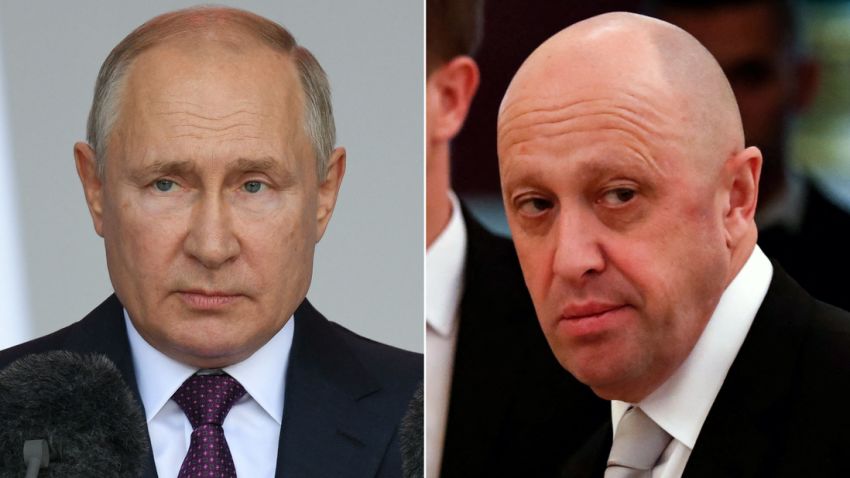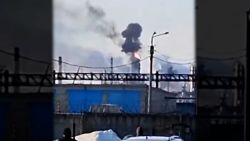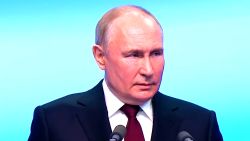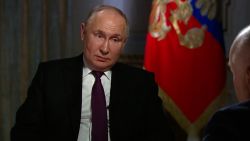Yevgeny Prigozhin, the combative boss of Russia’s Wagner private military group, relishes his role as an anti-establishment maverick, but signs are growing that the Moscow establishment now has him pinned down and gasping for breath.
Prigozhin placed a bet on his mercenaries raising the Russian flag in the eastern Ukrainian city of Bakhmut, albeit at a considerable cost to the ranks of his force and probably to his own fortune.
He spent heavily on recruiting as many as 40,000 prisoners to throw into the fight, but after months of grinding battle and staggering losses he is struggling to replenish Wagner’s ranks, all the while accusing Russia’s Ministry of Defense of trying to strangle his force.
Many analysts think his suspicions are well-founded – that Russia’s military establishment is using the Bakhmut “meat-grinder” to cut him down to size or eliminate him as a political force altogether.
At the weekend, Prigozhin acknowledged that the battle in Bakhmut was “difficult, very difficult, with the enemy fighting for each meter.”
In another video message, Prigozhin said: “We need the military to shield the approaches (to Bakhmut). If they manage to do so, everything will be okay. If not, then Wagner will be encircled together with the Ukrainians inside Bakhmut.”
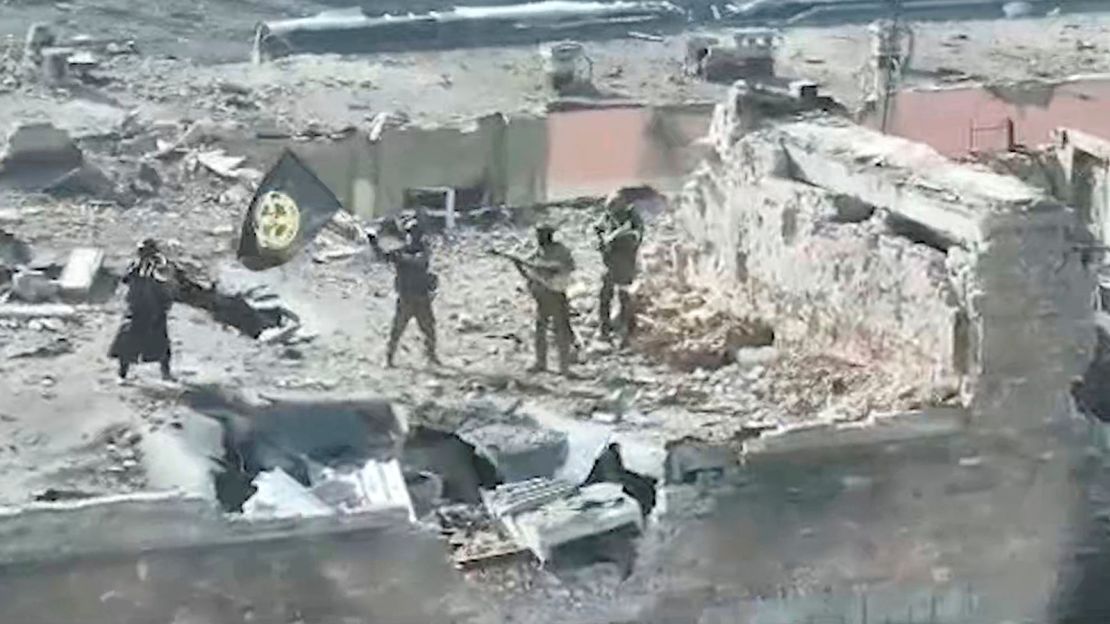
Just when Prigozhin most needed the support of regular Russian forces and a reliable flow of munitions, neither appears to be available.
Wagner has made incremental gains around Bakhmut and now holds the eastern part of the city. But it seems unable to generate enough force to expel Ukrainian forces from the rest of Bakhmut. And its fighters are spread thin as they push northwest and southwest beyond the city.
The Washington-based Institute for the Study of War (ISW) think tank assesses that Defense Minister Sergei Shoigu “is likely seizing the opportunity to deliberately expend both elite and convict Wagner forces in Bakhmut in an effort to weaken Prigozhin and derail his ambitions for greater influence in the Kremlin.”
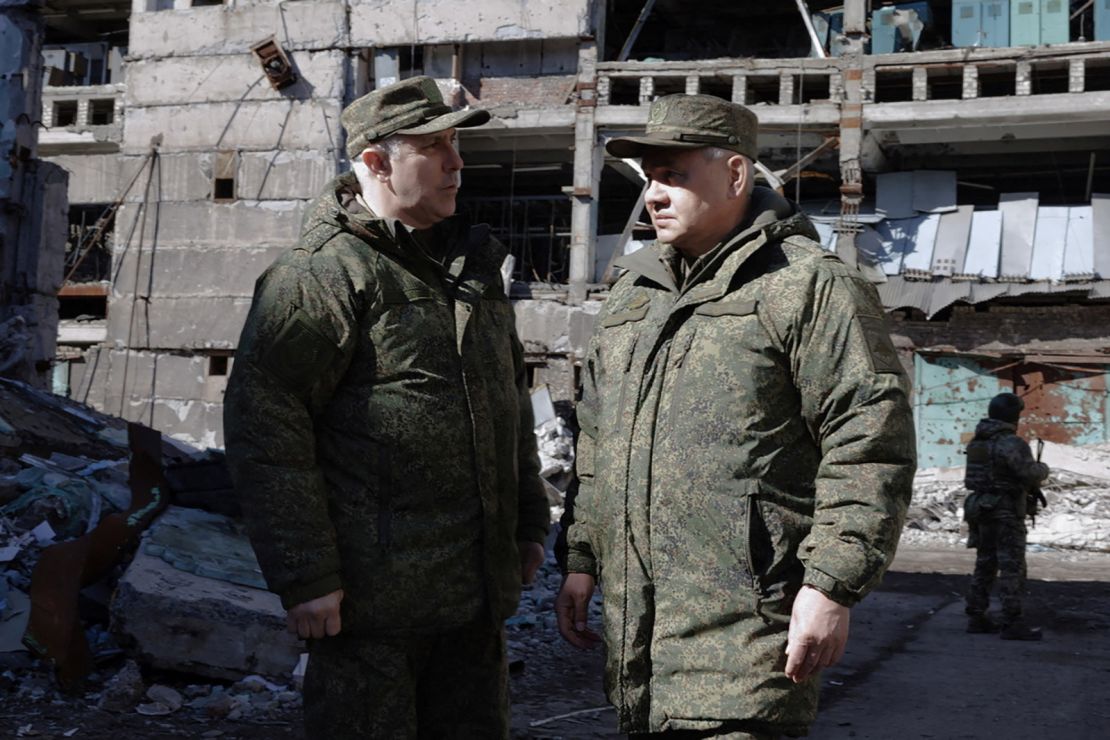
For weeks, Prigozhin and his commanders have complained of inadequate munitions supplies just as they’ve been trying to encircle and take Bakhmut.
“The Russian MoD had been increasingly restricting Prigozhin’s ability to recruit convicts and secure ammunition, forcing Prigozhin to publicly recognize his dependency” on the ministry, according to ISW.
Blaming Prigozhin also helps the defense ministry to deflect from its own failures, especially around Vuhledar to the south, where regular forces have taken heavy losses.
The licensed disruptor
Last year, Prigozhin’s bravado and connections as what might be termed as Russian President Vladimir Putin’s licensed disruptor allowed him to unlock Russia’s prisons and promote Wagner as a vital part of Russia’s war machine.
At the same time, he doubled down on caustic criticism of Shoigu and the generals for incompetence and corruption. He attacked the handling of the fall mobilization. Days after Ukrainian forces humiliated the Russian military in Kharkiv last September, Prigozhin turned up at a Russian prison to make a recruitment video.
At times, Prigozhin’s criticisms were even more pointed: He taunted Shoigu’s son-in-law for living it up in Dubai over the New Year. There were also signs that he was making common cause with Russian ultra-nationalists who have been equally critical of the conduct of the campaign.
But Shoigu – defense minister for more than a decade – is a shrewd operator. He engineered changes in the high command that deprived Prigozhin of allies, and promoted generals whom Prigozhin had criticized.
Many analysts saw Shoigu as behind the sudden disclosure in February that Wagner was ending prison recruitment.
Now the Wagner boss looks isolated. He’s been forced to push his best fighters into the battle for Bakhmut, leading ISW to surmise that the defense ministry was using Wagner “to bear the brunt of the high-intensity attritional urban warfare to seize Bakhmut in order to conserve Russian conventional forces.”
There’s a growing bitterness in Prigozhin’s voluminous social media output. On Monday he was asked about a Russian commander he was with at Bakhmut. He described him as “a normal, strong Russian man.”
“Such people should manage the Russian army – simple, understandable, correct, honest,” he added. Instead, “unprofessional scoundrels and intriguers crushed these modest guys and began to push around and humiliate them.”
It was another barb aimed at the establishment.
But the Moscow elite appear to sense that Prigozhin is wounded.
On Monday, commentator Alexei Mukhin, a member of the Kremlin-linked Valdai Club think tank, accused Prigozhin in a post on Telegram of having political ambitions – even a tilt at the presidency. That would amount to heresy in Putin’s Russia.
Mukhin also claimed Prigozhin was an incompetent commander trying to camouflage his defects by blaming the military, adding: “He has exposed the Wagner fighters to a major risk of encirclement from the expected counterattack.”
Prigozhin shot back: “Since I don’t have any political ambitions, please give us the ammunition.”
Prigozhin may also have been surprised by the Ukrainian determination to fight for Bakhmut. A Wagner fighter said this week: “They are fighting for each house, they don’t want to leave, constantly sending more reserves and fighting fiercely.”
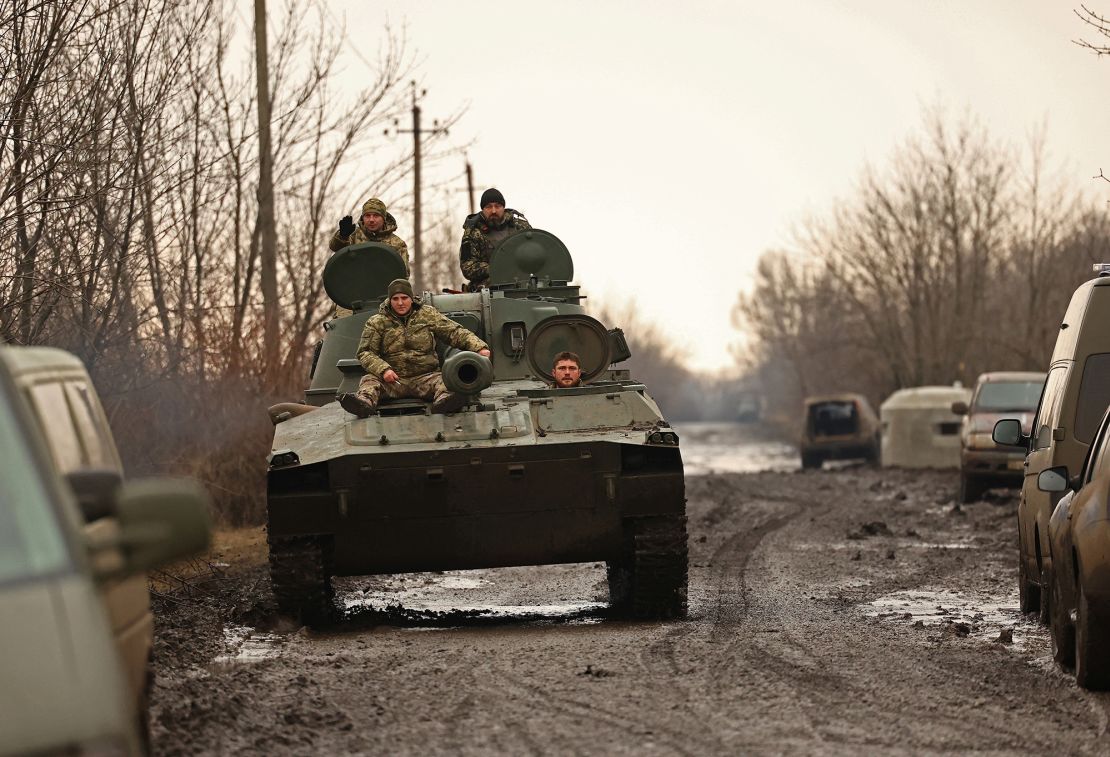
The Ukrainian military appears to have decided to stay in the battle for Bakhmut, and that only lengthens the odds for Prigozhin. One Ukrainian soldier said in a television interview on Tuesday: “As long as there is a stable front, as long as there is a stable supply, as long as there is a stable evacuation of the wounded, it is obvious that the city must be held.”
If Wagner is decimated in an unsuccessful bid to take Bakhmut, Prigozhin might find himself out in the cold.
Writing in The Spectator, Kremlin-watcher Mark Galeotti says: “Putin is happy to give the political entrepreneurs who swirl around his court a degree of autonomy if they promise results, but he will as easily discard them if they fail to deliver.”
And Prigozhin has bet the farm on Bakhmut.
